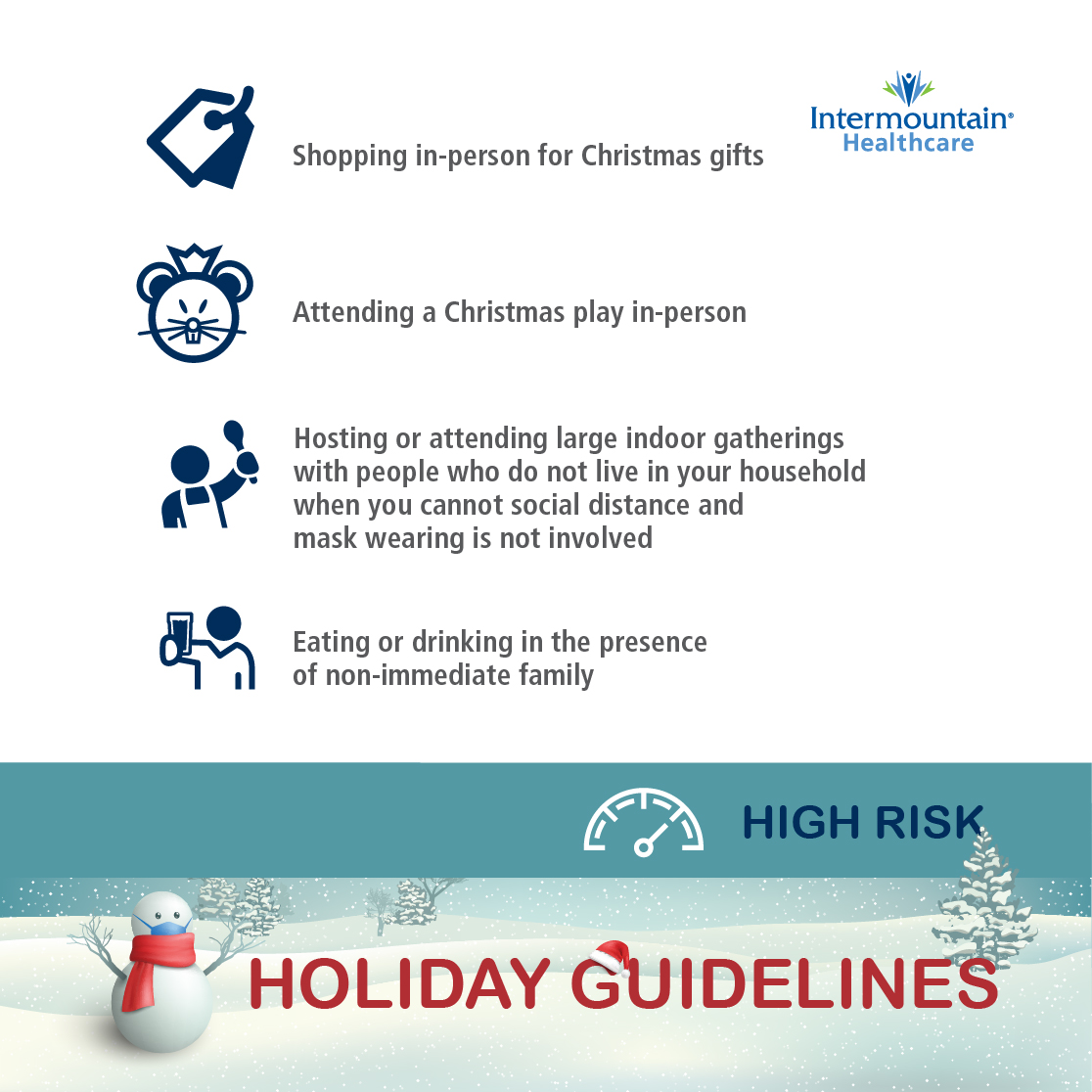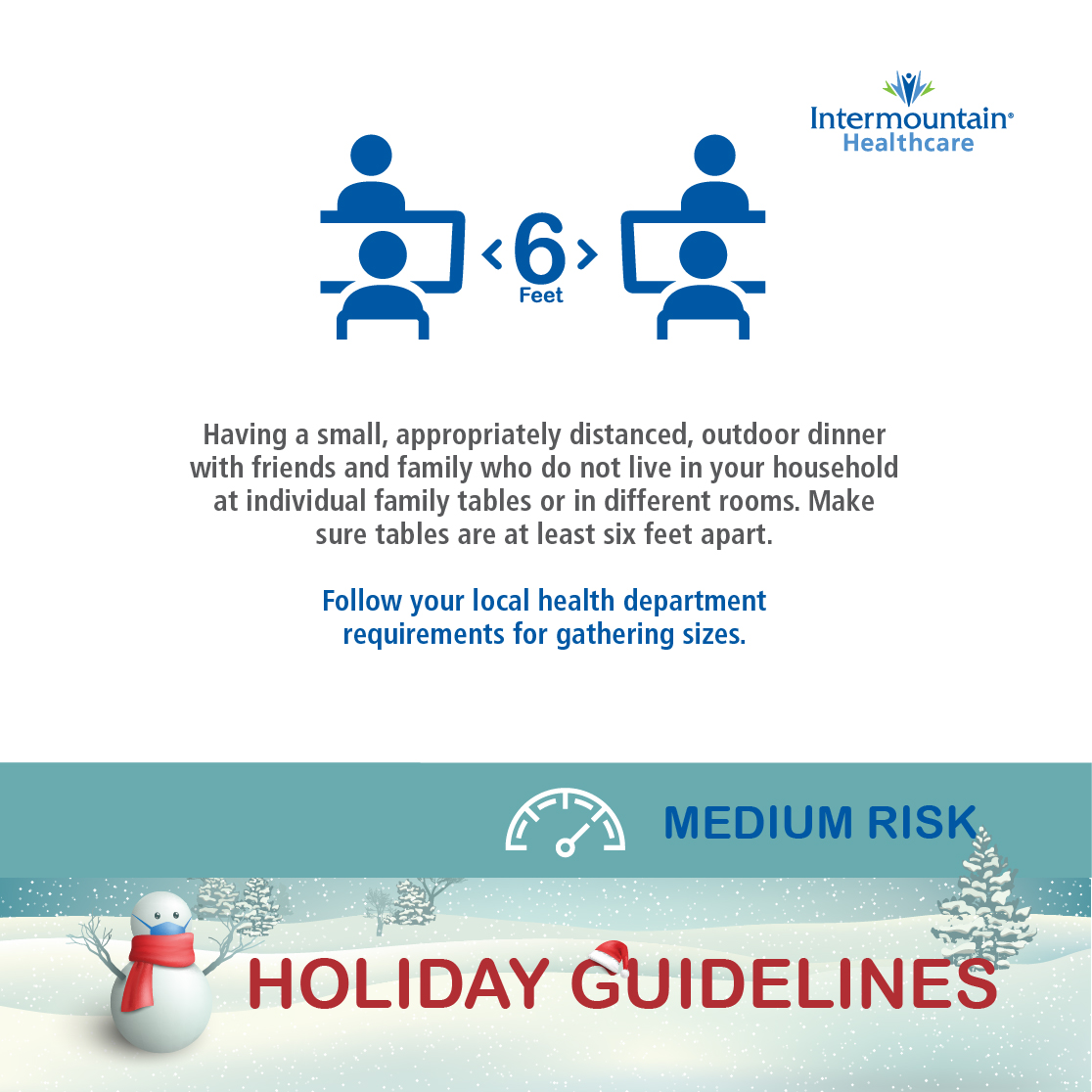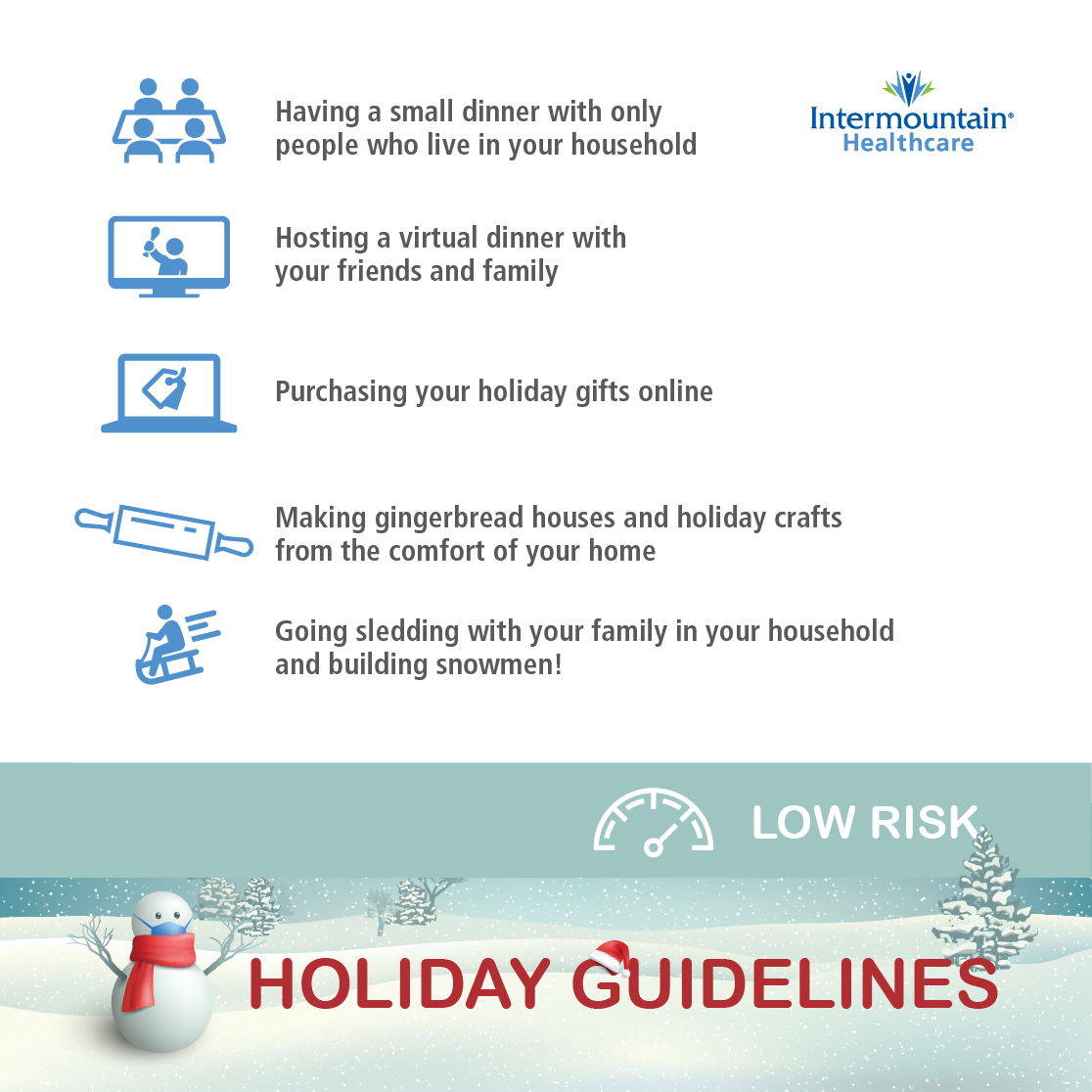COVID-19: How to keep your family safe this holiday season
COVID-19: How to keep your family safe this holiday season
By Unknown
Updated
5 minute read
Can we still have our annual holiday dinner?
For many people, it’s hard to imagine holiday dinners without the traditional turkey feast or ham, surrounded by family and friends. But Intermountain Healthcare infectious disease expert Eddie Stenehjem, MD, urged people to be cautious when planning gatherings.
“Unfortunately, our holidays are coming in at a terrible time for us,” Stenehjem said. “Cases are at an all-time high and are continuing to go up. … So, if you are bringing other people into your home, if you're bringing in a large family gathering, that could be a super spreader event.”
Stenehjem warned that even small indoor gatherings can be a source for transmitting the virus. Instead, he suggested opting for an outdoor gathering if the weather permits. If you have to be inside, make sure you’re in a well-ventilated space and follow CDC guidelines.
Is it safe to travel or host visitors?
Apart from your holiday meals, you may have plans to travel or host visitors. Here’s what you need to know:
- College students carry a high risk of infection and often are asymptomatic (showing no symptoms). If you have a college student returning for the holidays, you may want to consider having them come home early to quarantine.
- Visitors who come from areas with a high rate of confirmed COVID cases carry a much higher risk – particularly if they haven’t been wearing masks or practicing social distancing.
- Visitors traveling from places with lower case counts may not pose a risk to you, but you might pose a risk to them.
- If you’re concerned about spreading the virus before you travel, quarantine for 14 days beforehand, if possible.
- Recognize that even while taking precautions, traveling increases your risk of catching or transmitting COVID-19.
Assess the risks of your holiday activities
Keeping everyone healthy and safe this holiday season depends heavily on people exercising good judgment. To gauge whether a certain activity is safe or not, here’s some advice from Intermountain Healthcare infectious disease experts and the CDC.
High Risk Activities
- Shopping in-person during crowded store sales (e.g., Black Friday).
- Attending parades in-person.
- Hosting or attending large indoor gatherings with people who do not live in your household.
- Hosting or attending large outdoor gatherings with people from outside your household with no social distancing and no masks.
Medium Risk Activities
- Having a small outdoor dinner with friends and family who live in your community. Make sure you consider your local health department requirements for size of gathering.
NOTE: Gathering with others outside your household without masks is a high-risk situation, no matter the size of the party. The risk goes up with larger parties and longer gatherings. Families that do not live together should try to sit at separate tables or in different rooms, if possible.
Low Risk Activities
- Having a small dinner with only people who live in your household.
- Hosting a virtual dinner with your friends and family.
- Participating in Black Friday online.
- Enjoying football, parades and more from the comfort of your home.
- Delivering delicious meals to your friends and family who are high-risk that doesn’t involve contact with others.
A final word of caution
Though you might feel safe around families or individuals who “appear” to be healthy, remember that viruses can be passed before symptoms appear. This means you could be spreading COVID-19 without knowing it. With that in mind, it’s never been more important for people to take added precautions. By following a few simple measures, you can show yourself and those around you that it is possible to safely enjoy the holidays – without spreading COVID-19.
General Reminders:
- Wear masks around those who are not in the same household, even if they are your family.
- Social distance while eating and limit your group size according to local recommendations.
- Frequently wash your hands and clean high-touch surfaces.
- Stay home if you are sick (with anything) or have symptoms.
- Understand that dining with anyone NOT in your household is a risk, no matter if the group size is large or small.
- Put family groups at separate tables at least six feet apart.
- Dine outside, if possible. If not, dine in separate rooms.
- Wear masks for social events when everyone is together.
- Try to avoid eating and drinking in the presence of non-immediate family.
- Avoid using alcohol or drugs, as this may impair your judgment and put you at risk of transmission.
- Serve food individually instead of in a communal buffet. Have one person serve each plate.
- Isolate and get tested if you develop symptoms of COVID-19.


